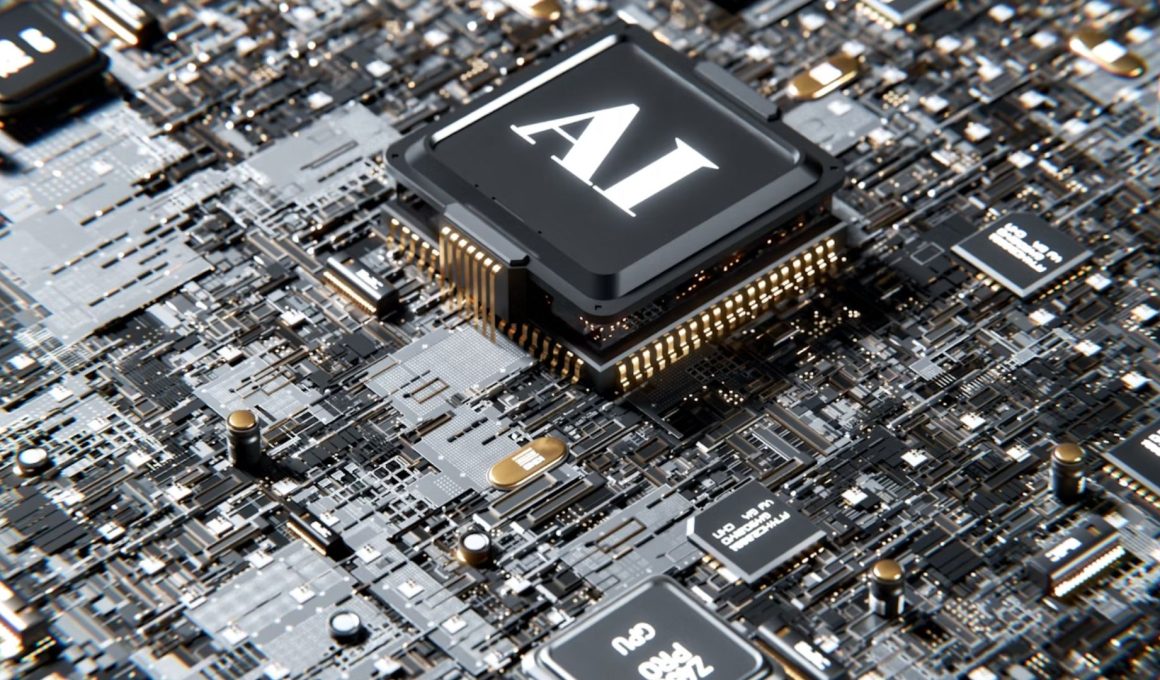Artificial intelligence (AI) has become one of the most transformative forces in the modern world, revolutionizing industries and reshaping the way businesses operate. From predictive analytics to autonomous systems, AI is no longer a futuristic concept—it’s a powerful tool driving innovation and efficiency. Companies leveraging AI are redefining what’s possible, solving complex problems, and gaining competitive advantages in a rapidly evolving landscape. This article explores how AI is transforming industries, the opportunities it presents, and the ethical considerations that come with it.
AI in Healthcare: Saving Lives Through Precision and Efficiency
Healthcare is one of the most impactful areas where AI is making a difference. By analyzing vast datasets, AI systems can identify patterns and provide insights that were previously unattainable. This has led to significant advancements in diagnostics, treatment planning, and patient care.
Take IBM Watson Health, for example. Watson uses natural language processing (NLP) to analyze medical literature and assist doctors in diagnosing complex conditions. In oncology, Watson can recommend personalized treatment plans by comparing patient data with millions of research articles and clinical trials.
AI-powered imaging tools are also revolutionizing diagnostics. Algorithms can now detect abnormalities in medical scans, such as tumors or fractures, with accuracy that rivals or even exceeds that of human radiologists. Companies like Zebra Medical Vision have developed AI tools capable of identifying over 50 medical conditions from imaging data.
Additionally, AI is enhancing operational efficiency in healthcare systems. Predictive analytics can forecast patient admissions, enabling hospitals to optimize staffing and resources. This level of preparedness reduces costs and improves patient outcomes.
Retail and E-commerce: Redefining the Shopping Experience
AI has become a cornerstone of the retail and e-commerce industries, enabling businesses to create personalized and seamless shopping experiences. From recommendation engines to dynamic pricing, AI is shaping how consumers interact with brands.
Amazon, a pioneer in AI-driven retail, uses machine learning to power its recommendation system. By analyzing purchase history, browsing behavior, and similar customer profiles, Amazon’s AI suggests products tailored to individual preferences. This not only enhances the customer experience but also drives sales.
In physical retail, companies like Zara leverage AI for inventory management. By analyzing sales data and customer trends, AI systems predict demand and optimize supply chains. This minimizes overstocking and reduces waste, contributing to sustainability.
Moreover, conversational AI is transforming customer service. Chatbots like those developed by Zendesk or Drift provide instant support, answering queries, and guiding customers through the buying process. These tools ensure consistency and availability, enhancing overall satisfaction.
AI in Manufacturing: Enhancing Productivity and Precision
In manufacturing, AI is powering the rise of Industry 4.0—a new era of smart factories and connected systems. Predictive maintenance, robotic automation, and quality control are just a few areas where AI is revolutionizing operations.
For instance, General Electric (GE) uses AI-driven predictive maintenance to monitor its industrial equipment. Sensors collect real-time data on machinery performance, and AI analyzes this information to predict failures before they occur. This reduces downtime and saves millions in repair costs.
Robotics, powered by AI, is another game-changer. Autonomous robots can adapt to varying production needs, improving precision and speed. Tesla’s Gigafactories, for example, use AI-enabled robots to assemble electric vehicles, achieving levels of efficiency that traditional assembly lines cannot match.
Quality control is also benefiting from AI’s capabilities. Vision systems equipped with machine learning can detect defects in products with unmatched accuracy, ensuring consistency and reducing waste.
Finance: Revolutionizing Risk Management and Customer Engagement
The financial industry has been quick to adopt AI, using it to improve decision-making, enhance customer experiences, and combat fraud.
AI-powered algorithms are transforming risk management. Banks and investment firms use machine learning to assess creditworthiness, analyze market trends, and identify potential risks. This enables more informed decisions and reduces the likelihood of financial losses.
Fraud detection is another critical area where AI shines. Companies like Mastercard employ AI to monitor transaction patterns and detect anomalies in real time. By identifying suspicious activities early, AI helps protect both businesses and consumers from financial fraud.
AI is also enhancing customer engagement in banking. Virtual assistants like Bank of America’s Erica provide personalized financial advice, track spending habits, and offer insights to help customers achieve their financial goals.
Ethical Considerations in AI Adoption
While AI offers tremendous potential, its adoption comes with ethical challenges. Issues such as data privacy, algorithmic bias, and the displacement of human labor require careful consideration.
Data privacy is a growing concern, as AI systems often rely on sensitive personal information. Organizations must ensure that data is collected and used transparently, adhering to strict privacy regulations.
Algorithmic bias is another significant issue. AI systems trained on biased datasets can perpetuate discrimination, leading to unfair outcomes in areas like hiring, lending, and law enforcement. Developers must prioritize diversity and fairness in training data and algorithms.
Finally, the automation of tasks through AI has raised fears about job displacement. While AI can create new opportunities, businesses must invest in reskilling programs to support workers affected by automation.
The Future of AI in Business:
As AI continues to evolve, its potential applications are limitless. Emerging technologies like generative AI and quantum computing promise to unlock new possibilities in innovation. Generative AI, exemplified by tools like DALL-E and GPT, is already transforming creative industries by enabling the generation of content, designs, and even code.
Quantum computing, though still in its infancy, holds the potential to solve problems that are currently beyond the reach of traditional computers. From optimizing supply chains to accelerating drug discovery, the fusion of AI and quantum computing could redefine what businesses can achieve.
Artificial intelligence is a driving force of innovation, reshaping industries and redefining the boundaries of what’s possible. By harnessing AI’s capabilities, businesses can enhance productivity, improve customer experiences, and stay ahead in an increasingly competitive world.
However, with great power comes great responsibility. Organizations must adopt AI thoughtfully, addressing ethical concerns and prioritizing transparency and fairness. As we look to the future, one thing is clear: AI will continue to be a cornerstone of progress, transforming industries and creating opportunities for those ready to embrace its potential.
Image Source: Unsplash.com












